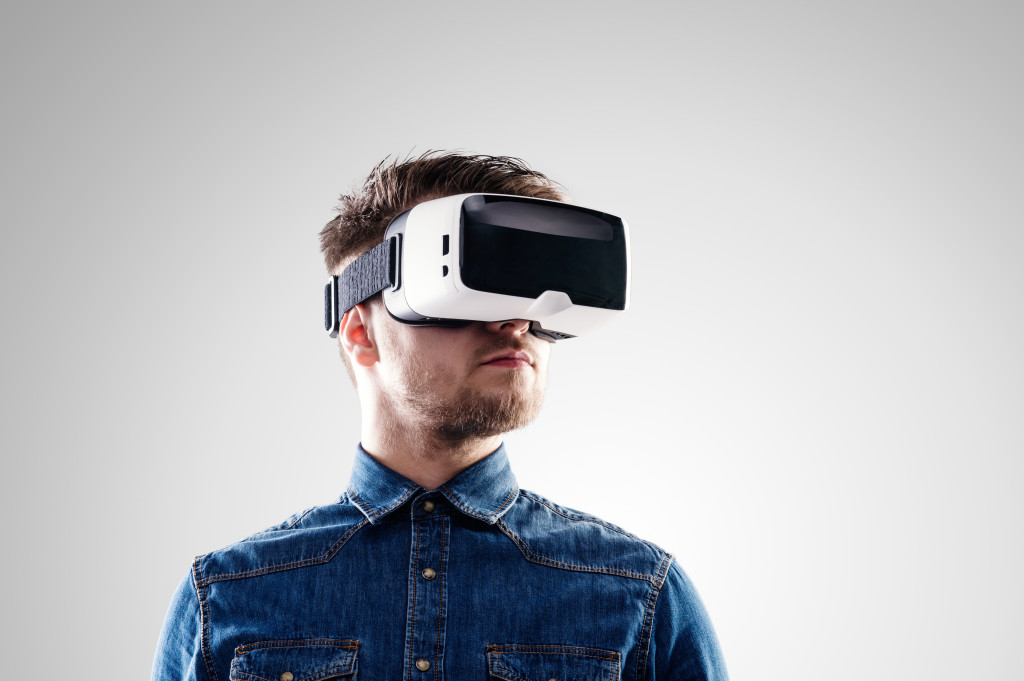During the current coronavirus crisis, government and commercial institutions have been forced to keep their people out of the workplace and recreation grounds. Yet, the need to keep moving along with economic demands remains, even from the confines of the home. Talent and craft development have become more challenging due to the pandemic, as on-site training activities have been significantly curtailed, both for indoor and outdoor settings.
The challenges posed by remote work and isolation can, fortunately, be abated by modern gaming technology and innovation. Game-based training has been found to transform traditional modalities of learning and training into active, more engaging experiences from just the typical passive modes of watching and listening in on video or audio through digital streaming. The emergence of simulator technology is also a welcome development in the field of sports and recreation.
A study showed that game-based and simulation training, compared to traditional instruction or demonstration, yielded a 20% increase in self-efficiency, 9% better retention, 14% improvement in procedure knowledge, and an 11% increase in declarative knowledge. Additionally, a survey showed that, among participants aged 25-54, 79% agreed that they feel more productive when work took on game-like dimensions.
To be able to effectively utilize the benefits of virtual games and simulation, the first step is to identify the training goals and specific organizational vision and align these with suitable, relevant, and engaging digital platforms.
Memory Games for Knowledge Retention
Memorization games challenge users and facilitate knowledge retention in the long-term memory rather than in the short-term. The challenge to view visual elements for a limited time and then be able to describe qualities, record data, note similarities or differences, etc. afterward exercise the individuals’ recollection of the previously viewed elements.
Judgment Games for Improved Comprehension
Judgment games like trivia can be used for process training. They work to challenge individuals to interpret data, make intelligent comparisons, predict outcomes, and justify their choices. These abilities are vital measures of an individual’s effective judgment and can indicate to their superiors where opportunities are present.
Consequence Games for Application Skills
Consequence games typically use storylines that branch out, compelling users into various directions depending on the choices they make. Players are challenged to exercise their decision-making by visualizing causal relationships between concepts. Outcome prediction abilities are likewise exercised, as well as quickness to respond to or adapt to situations.

Strategy Games for Analytical Practice
A person’s ability to assess situations and make decisions accordingly with little to no error can be advantageous both in the workplace and in the field. Strategy games such as puzzles and solution-based activities may be applied to management training agendas. These test users’ abilities to make quick decisions and assess other users’ decisions, as well. The goal is to develop play patterns and strategies that will outplay other users. This is beneficial to office-based employees, field assignments, and athletes alike.
Exploration Games for Decision-Making Practice
Exploration games such as Grand Theft Auto, World of Warcraft, or Zelda present multiple outcomes based on users’ unique decisions. These games reinforce the ability to predict outcomes, set priorities, and evaluate cause-effect relationships allowing for more flexible mind-setting. These abilities contribute to shaping a person’s decision-making skills, critical to the workplace and field assignments.
Simulation Games Exercise Evaluation
Simulation games allow users free-roaming and collaboration while in immersive gameplay. Players assume the identity of game characters which they design, together with lifestyles they themselves create. Often, simulation games are not competitive, but it provides sound exercise for users to make decisions and work toward different outcomes. This game format can provide managers with insight into employee knowledge and behavior.
Sports Simulation for Athleticism
Sports simulators can analyze a player’s throw, kick, shot, or swing, often with the use of software and high-speed radars or cameras, such as in indoor golf ranges and speed pitch booths or cages. Software and hardware record and provide insight into a player’s movements to predict accuracy, direction, or force resulting in successful scoring. While the pandemic limits outdoor activity, both professional and amateur athletes, along with the occasional enthusiasts, can continue developing athletic skills and abilities.
Games and simulators can be beneficial to talent development when utilized strategically for employee or athletic testing and training. Studies provide evidence that game-based activities used for training and development help to enhance retention of knowledge as well as build on existing abilities for analysis, scenario assessment, cause-effect evaluation, decision-making, and even athleticism. The primary challenge lies in determining which game or simulator tools will properly align with the training goals or organizational vision to achieve optimal results.
